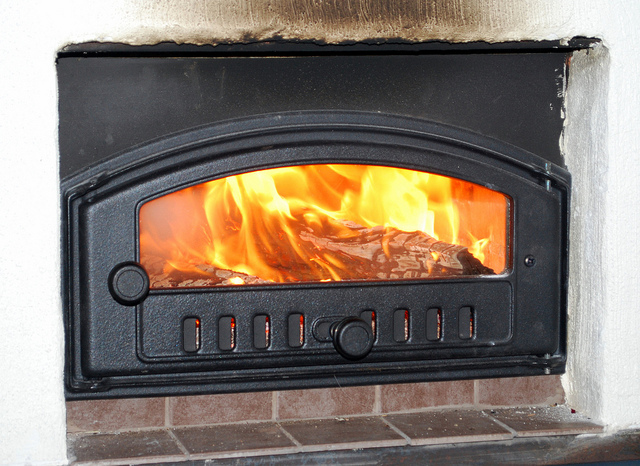8 Unorthodox Tips to Cut Down Your Heating Bill
Winter in Michigan can be tough on heating bills. When the temps drop below 20 degrees, keeping the cold air out and the warm air in can be especially difficult for everyone. As a result, heating bills can sky rocket. While there’s a traditional list of methods to lower costs this winter we’re always looking for new ways to lower our heating bills while also staying warm.
 We’re always looking for ways to make our furnace work less so our heating bills remain low. The colder it gets, the more a furnace has to work to keep the house warm. Most of us can probably agree that we have tried quite a few common energy-efficient techniques to lower the heating bill. Homeowners will try everything from buying space heaters and turning down the furnace to covering windows with plastic film. Unfortunately, some conventional heating methods like space heaters, can drive up electric costs as well.
We’re always looking for ways to make our furnace work less so our heating bills remain low. The colder it gets, the more a furnace has to work to keep the house warm. Most of us can probably agree that we have tried quite a few common energy-efficient techniques to lower the heating bill. Homeowners will try everything from buying space heaters and turning down the furnace to covering windows with plastic film. Unfortunately, some conventional heating methods like space heaters, can drive up electric costs as well.
In addition to these methods and resources that could help decrease heating costs in your home, there are some other unconventional methods to saving energy and money this winter.
Insulate Electrical Outlets to Avoid Drafts
Do you ever notice a slight draft coming from your exterior wall outlets? Sometimes insulation isn’t placed behind electrical boxes correctly, therefore allowing air to flow in from outside. To prevent leaks or correct them, simply remove the cover plates and fill any small gaps around the box with acrylic latex caulk or foam sealant for larger gaps.
Additionally, you can purchase foam gaskets for about a dollar to place over an outlet or switch and then cover with the plate. This will prevent any air leaks, thus helping save on that heating bill.
Take Advantage of the Sun
The sun still heats your home in the winter as it would in the summer, despite the frigid air. How can you take advantage of the sun’s heat to warm your home though? It’s fairly simple. Keep your window curtains open during the day especially on the side that is most sunny, and keep them closed at night. During the day, you should allow as much sunlight to enter your house as possible. If you’re worried that keeping your curtains open all day will contradict this method, apply the traditional plastic film covers for peace of mind. Your house will still absorb just as much heat.
At night, be sure to close your curtains to avoid any drafts. It’s always colder at night because the sun has set. During the day, however, you should take advantage of the sun’s rays—they’re free.
Keep Registers Clear of Items and Heat Only the Rooms You Use
It’s important to provide even heating throughout each room. Blocked registers with a flow of warm air will prevent this. For example, if there is a chair or sofa on top of a heat vent, it’s like keeping it partially or completely closed. This is ultimately a waste of your heat, and you’ll be paying for it because it takes longer to heat that particular room.
If there are rooms you don’t use at all, however, you might consider keeping those heat registers closed. Heating a room you don’t use, such as a spare room in the basement, is a waste of heat that you could be supplying elsewhere throughout the home.
Use a Humidifier to Retain Heat
Humidifiers don’t produce a source of heat, but what they can do is help retain it, therefore requiring less work from your furnace. The more moisture there is in the air, the more heat it can hold. The same reaction can be applied to the summer. When humidity is high, typically the air temperature remains high, too. If you don’t own a humidifier, boiling a pot of water on the stove can do the same trick.
You can learn a little more about how humidity in your home helps reduce heating costs:
Benefit from Your Oven’s Heat
If you’re going to cook anyway from home and plan to use the oven, don’t simply shut the oven door when you’ve finished cooking. Keep it open or slightly ajar to release all that heat that has built up. It will act as a space heater for a moment, warming up your kitchen.
Use Pipe Insulation for Doors
One of the leading factors of wasted heat and high heating expenses comes from doors and windows. While simply locking a door can help prevent any leaks by completely sealing it, some homeowners can go a step further. Invest in some pipe insulation. Cut the tubular insulation in half and slide it underneath the door to act as a sealant to prevent drafts.
Utilize Ceiling Fans
Ceiling fans can do a little more than simply cool a room. If your home allows good airflow and you have ceiling fans, use them to your advantage in the winter. In the summer, ceiling fans cool you down because they push hot air upwards when spinning counterclockwise. If you spin your ceiling fan clockwise, it will push heat downwards and trap it within the room.
Invest in a Chimney Balloon
Because hot air rises, fireplace chimneys allow hot air to escape your home pretty easily. While a wood burning fireplace seems like a great idea in the winter, be advised that it can contribute to a high heating bill. Fireplaces have been known to suck warm air out of a home.
If you can do without a fireplace in the winter, take extra precautions and invest in a chimney balloon, as well. They come in a range of sizes to fit almost any chimney. They will prevent any natural heat loss and if you forget to remove the balloon before lighting a fire, it will deflate automatically.
Staying warm shouldn’t be a burden. There are plenty of unorthodox methods to try to lower your heating bill this winter other than turning down your thermostat. You simply have to figure out which methods work best for you and your home.
